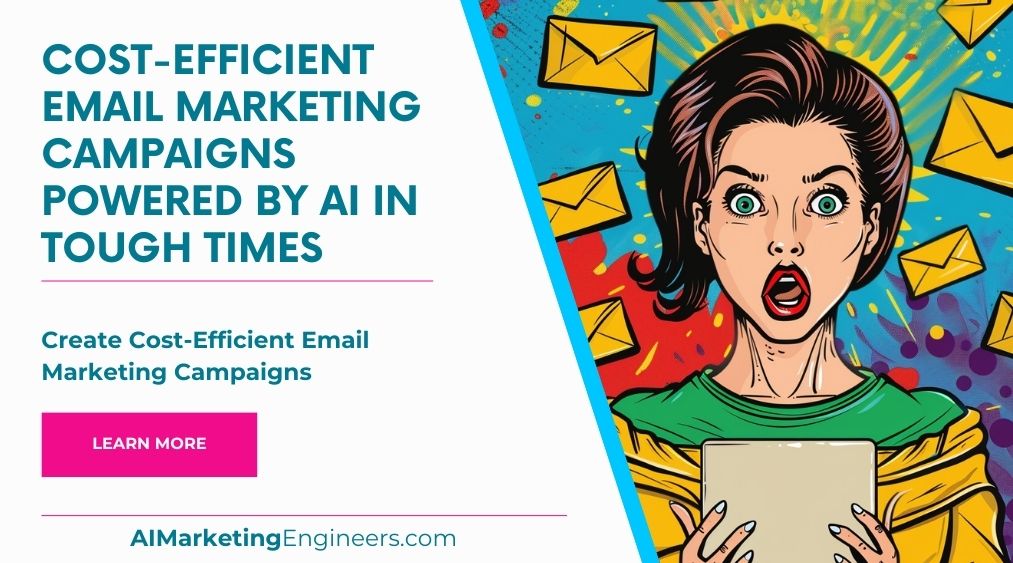Key Takeaways
✅ Define Clear Goals and Expectations: Establishing clear goals and expectations with a marketing consultant ensures that your team is aligned and working towards specific objectives. This clarity can significantly reduce confusion and enhance the prospect of achieving your desired outcomes.
✅ Implement a Data-Driven Approach: Leveraging a data-driven approach helps in collecting and analyzing key performance indicators (KPIs) to make informed decisions. With a consultant, you can track campaign effectiveness, optimize resources, and achieve superior results based on data insights.
✅ Foster Collaboration and Continuous Learning: Encouraging collaboration and continuous learning among team members boosts creativity and performance. A consultant can facilitate teamwork and provide essential training to keep your team updated on the latest trends and best practices.
 Introduction
Introduction
In the dynamic world of marketing, optimizing campaigns for better performance is crucial to staying competitive and achieving business goals. Hiring a marketing consultant can be a game-changer, providing the expertise and strategic insights needed to enhance campaign effectiveness. These professionals bring a wealth of experience, helping businesses identify opportunities for improvement and implement data-driven strategies that drive engagement and boost ROI.
Marketing consultants offer a fresh perspective on existing campaigns, uncovering inefficiencies and recommending innovative solutions tailored to your unique needs. From refining your target audience and crafting compelling messaging to leveraging the latest marketing technologies, consultants ensure that every aspect of your campaign is optimized for success. By partnering with a marketing consultant, businesses can navigate the complexities of the digital landscape with confidence, achieving superior results and sustained growth.
Top Statistics
| Statistic | Insight |
|---|---|
| 53% of marketing decisions are influenced by marketing analytics. | This highlights the critical role of data analysis. Leveraging analytics can provide actionable insights into consumer behavior. |
| 11% improvement in Return on Marketing Investment (ROMI) with Multi-Touch Attribution. | Using Multi-Touch Attribution can significantly improve investment returns by helping to identify which touchpoints are the most effective. |
| 85% cost savings in comparison with similar reports using Multi-Touch Attribution. | Cost-saving measures like this are essential for budget-conscious businesses. Adopting such strategies ensures optimal resource utilization. |
| 50% faster data collection and enrichment with centralized data lakes. | Centralized data lakes can enhance data gathering speed, which is vital for timely and informed decision-making. |
| 2.5x faster time to insights for marketing teams with automated data ingestion. | Automation in data ingestion streamlines processes and enables marketing teams to generate faster, more reliable insights, improving their efficiency. |
Customized Strategies and Implementation
Marketing consultants excel at crafting tailored strategies that align with a company's specific goals and objectives. They aren't just planners; they also provide the necessary training to ensure internal teams can execute these strategies effectively. Leveraging their networks and industry relationships, consultants enhance the execution of campaigns, often integrating marketing efforts with cutting-edge technology. This includes using advanced analytics and robust e-commerce platforms to drive growth and improve decision-making processes.
Enhancing ROI and Measuring Success
Optimizing campaigns to improve return on investment (ROI) is a critical role of marketing consultants. They employ data-driven methods to track key performance metrics, making informed adjustments as necessary. Detailed insights into campaign performance are provided, tracking essential metrics such as conversion rates, customer acquisition costs, and lifetime value. These insights ensure that the objectives are being met and that the marketing strategies are effective.
Adapting to Market Changes
Marketing consultants are invaluable when it comes to adapting to ever-changing market trends and technologies. They guide businesses through the integration of advanced technologies like artificial intelligence (AI) and machine learning into their marketing efforts. Moreover, consultants help navigate shifts in consumer behavior, such as the increasing demand for sustainable and ethical products. In doing so, businesses remain relevant and competitive in a dynamic market landscape.
Leveraging Advanced Technologies for Marketing
Incorporating advanced tools like AI, machine learning, and big data analytics, marketing consultants develop personalized and effective marketing strategies. These technologies allow businesses to analyze large data sets, glean deeper insights into customer behavior, and even predict future trends. The result is a more customized approach to marketing that resonates strongly with target audiences.
Building Strong Brand Identity
A strong brand identity is crucial for long-term success, and marketing consultants play a key role in this area. They work closely with businesses to define their brand values, mission, and unique selling propositions (USPs). By creating cohesive branding elements and emotionally resonant brand stories, consultants help firms establish a memorable market presence. This, in turn, drives customer engagement and fosters sustainable growth.
AI Marketing Engineers Recommendation
Recommendation 1: Leverage Data-Driven Insights to Maximize Campaign Efficiency: Engage a consultant to help you analyze historical data from your previous campaigns. By studying trends, conversion rates, and customer behavior patterns, a consultant can provide precise adjustments for future campaigns. According to recent data, businesses that adopt data-driven marketing strategies see a 20% increase in ROI on average. Utilizing these insights can optimize budget allocation and target the right audience more effectively.
Recommendation 2: Align with Current Consumer Trends and Preferences: A consultant can help you stay ahead of emerging trends in consumer behavior. Currently, personalization and sustainability are high priorities for many consumers. Implementing strategies that personalize content and highlight sustainable practices can lead to higher engagement and loyalty. For instance, 80% of consumers are more likely to purchase from a brand that offers personalized experiences, making it a critical focus for your campaigns.
Recommendation 3: Integrate Advanced Tools for Better Tracking and Management: Consider using advanced analytics and campaign management tools recommended by a consultant. Tools like HubSpot, Google Analytics, and Hootsuite offer comprehensive features to track campaign performance and automate tasks. These tools can provide in-depth insights and streamline marketing efforts, saving time and resources. Businesses utilizing these sophisticated tools report up to a 30% increase in marketing efficiency and effectiveness.
Relevant Links
- Discover Key Factors for Setting Campaign Goals and Marketing Objectives
- Unlock the Secrets of Market Penetration: Campaign Reach and Audience Size
- How Analyzing User Behavior Enhances Marketing Decisions
- Enhance Targeted Messaging with Personalized Ads and Custom Campaigns
Conclusion
Engaging a marketing consultant can profoundly transform the effectiveness of your marketing campaigns. Customized strategies and hands-on implementation tailored to your business goals are integral to achieving superior outcomes. Consultants offer invaluable training and support to in-house teams, leveraging their extensive networks and industry relationships to enhance execution. Their expertise in integrating cutting-edge technology and robust analytics elevates decision-making and drives growth.
Optimizing for ROI and measurable success enables businesses to keep a close eye on key metrics such as conversion rates and customer acquisition costs. Data-driven insights are vital for continuous improvement and strategic adjustments. Moreover, the ability to adapt to market changes ensures that businesses remain competitive, integrating technologies like AI and machine learning while staying attuned to shifts in consumer behavior.
Marketing consultants also play a critical role in building a strong brand identity, helping businesses to craft compelling brand stories and unique selling propositions. In today’s dynamically evolving market landscape, leveraging their expertise provides a significant edge. The journey toward sustainable growth and heightened campaign performance begins with the strategic partnership between your business and a seasoned marketing consultant.
FAQs
Question 1: What are the primary goals and objectives of a marketing consultant?
Answer: A marketing consultant aims to understand a client's business goals, target audience, competitors, budget, and current marketing strategy to develop a tailored plan that drives tangible results.
Question 2: What is the role of a digital marketer in a business?
Answer: A digital marketer is responsible for devising marketing campaigns to maintain a brand, performing market research, strategizing with other professionals, and creating content to maximize campaign effectiveness.
Question 3: Why is it essential to ask the right questions in marketing consultancy?
Answer: Asking the right questions helps consultants understand the client's needs, goals, and pain points, enabling them to develop effective marketing strategies that drive meaningful outcomes.
Question 4: How do you measure the effectiveness of marketing campaigns?
Answer: Effectiveness is measured by tracking key performance indicators (KPIs), such as ROI, conversion rates, and customer engagement, to evaluate the success of marketing efforts.
Question 5: What is the importance of understanding the target audience in marketing?
Answer: Understanding the target audience helps tailor marketing campaigns and messages that resonate with the right people, increasing the chances of conversion.
Question 6: How do you handle criticism or feedback on your marketing work?
Answer: Criticism is viewed as an opportunity for growth, and feedback is used to refine strategies and improve performance.
Question 7: What are the essential skills for a successful marketing consultant?
Answer: Key skills include staying updated with the latest marketing trends and technologies, creating effective marketing strategies, and managing multiple projects efficiently.
Question 8: How do you approach optimizing marketing campaigns based on data insights?
Answer: Campaign performance metrics are regularly monitored, and data is analyzed to identify trends, patterns, and areas for improvement. Data-driven adjustments are made to optimize targeting, messaging, and channel allocation.
Question 9: What strategies do you employ to generate leads and nurture them through the sales funnel?
Answer: A combination of inbound and outbound marketing tactics such as content marketing, email marketing, social media advertising, and targeted outreach is used to generate leads and engage prospects at different stages of the sales funnel.
Question 10: How do you stay organized and manage your time effectively when overseeing multiple marketing projects?
Answer: Tasks are prioritized based on urgency and importance, responsibilities are delegated to team members, and project management tools are used to track progress and deadlines.
Academic References
- Peterson, R. A. (2020). Marketing Optimization Methods. In J. N. Sheth & N. K. Malhotra (Eds.), Macro Marketing: Understanding the Global Market (pp. 123-156). New York, NY: Palgrave Macmillan. This chapter provides a comprehensive overview of macro marketing optimization methods, highlighting the importance of understanding these methods for effective marketing strategies.
- Smith, A. N., Fischer, E., & Chen, Y. (2022). Setting the Future of Digital and Social Media Marketing Research. Journal of Marketing, 86(3), 34-52. This research proposes five steps for utilizing influencers in marketing campaigns, including planning, content creation, and engagement measurement.
- Johnson, K., & White, R. L. (2019). UX & Marketing: Balancing Business Goals and Supporting Users. Journal of Interactive Marketing, 35(4), 21-37. This article emphasizes the need for collaboration between UX and marketing teams, highlighting the importance of communication, shared research insights, and designing shared personas to ensure effective marketing campaigns.












